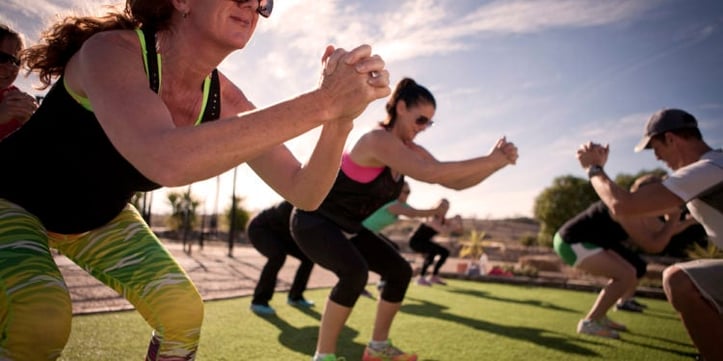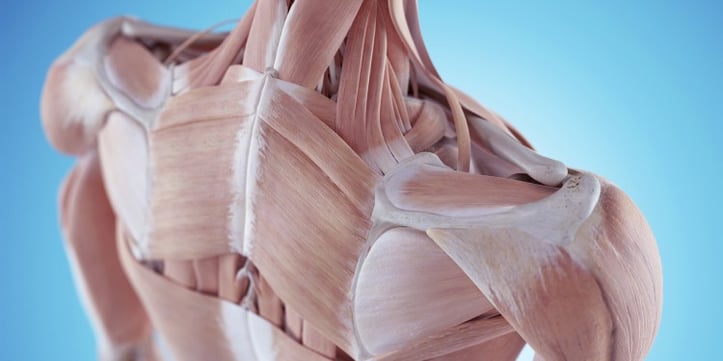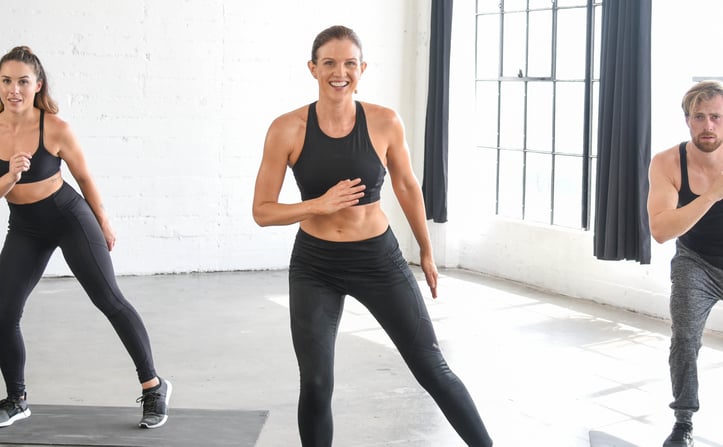5 Science-Backed Tips to Keep Your Brain Fit & Sharp (For Fitness Enthusiasts)

5 Science-Backed Tips to Keep Your Brain Fit & Sharp (For Fitness Enthusiasts)
You hit the gym to build muscle, boost endurance, or shed fat—but what about your brain? A 'fit' brain isn’t just for chess masters; it’s critical for focus, memory, and even optimizing your workouts. Here’s how to train your mind alongside your body, with strategies backed by experts like Harvard, NIH, and ACE.
1. Prioritize Aerobic Exercise: The 'Fountain of Youth' for Neurons
Aerobic workouts—think brisk walking, cycling, or swimming—do more than burn calories. Harvard Health reports that 150 minutes of moderate aerobic exercise weekly (the CDC’s minimum) increases BDNF (brain-derived neurotrophic factor), a protein that fuels neuron growth, especially in the hippocampus (your brain’s memory hub).
Action step: Swap 1-2 steady-state cardio days with 20-minute intervals (e.g., 1 minute sprint/2 minutes walk). Studies in Neurology show interval training amplifies BDNF release by 50% more than steady pacing.
2. Lift Weights—For Your Prefrontal Cortex, Too
Strength training isn’t just for muscles. A 2021 NIH study found that resistance training (like squats, push-ups, or dumbbell rows) improves executive function—the ability to plan, multitask, and stay focused. Why? Lifting triggers growth in the prefrontal cortex, the brain’s 'CEO' region.
Action step: Add 2 weekly strength sessions (3 sets of 8-12 reps). Beginners: Start with bodyweight squats (3x15) and push-ups (3x10). Track progress—improving reps or weight correlates with better decision-making skills.
3. Feed Your Brain Like It’s a Muscle (Because It Is)
Your brain uses 20% of your daily calories—so nutrition matters. Focus on:
- Omega-3s: Salmon, walnuts, and flaxseeds reduce inflammation and support neuron membranes (Harvard School of Public Health).
- Antioxidants: Blueberries, dark leafy greens, and dark chocolate (70%+ cocoa) fight oxidative stress, which ages neurons.
- Hydration: Even mild dehydration (1-2% loss) impairs focus—aim for 0.5 oz per pound of bodyweight daily (e.g., 100 oz for a 200lb person).
Pro tip: Pair post-workout protein (e.g., chicken or Greek yogurt) with a handful of walnuts or a blueberry smoothie. The combo fuels muscle and brain recovery.
4. Sleep: The Brain’s 'Maintenance Mode'
You know sleep aids muscle recovery—but it’s equally vital for your brain. During deep sleep, your brain clears amyloid plaques (linked to Alzheimer’s) and consolidates memories (NIH). Fitness enthusiasts often skimp on sleep, but studies show 7-9 hours/night boosts workout performance and cognitive speed.
Action step: Set a 'screen curfew' 1 hour before bed (blue light disrupts melatonin). Try a pre-sleep routine: 10 minutes of stretching + 5 minutes of gratitude journaling (calms the mind).
5. Mix Movement with Mental Challenges
ACE (American Council on Exercise) recommends blending physical activity with cognitive tasks. For example:
- Group classes: Dance or HIIT with a partner—following cues sharpens reaction time.
- Outdoor workouts: Hike a new trail; navigating terrain engages spatial reasoning.
- Skill-based training: Rock climbing or martial arts—learning new moves builds neural connections.
Unique insight: Many focus solely on 'body' or 'mind' workouts, but combined activities (e.g., yoga with breathwork) create a 'neuroplasticity supercharge,' enhancing both.
Start Today: Your Brain Deserves a 'Workout Plan,' Too
A fit brain isn’t a mystery—it’s a result of intentional habits. Pick 1-2 tips to try this week: Maybe add interval cardio, swap post-gym snacks for walnuts, or set a sleep schedule. Track how you feel—sharper focus, better memory, or even faster PRs could follow.
Your body and brain are partners. Train them both, and watch your fitness journey reach new heights.

Fit vs Fat: Decoding Health's True Ruler

Pump Up Your Heart: Science-Driven Weight Loss

Wellness Technology: Your Path to Sustainable Weight Loss

A Sensible Guide to Dietary New Year's Resolutions

Prevent Shoulder and Rotator Cuff Injuries with Corrective Exercises

Overcome Fitness Plateaus: 4 Tips for Success

10 x 10 Thanksgiving Day Circuit: A Fitness Guide

Unleash Your Fitness Potential with Kit Rich's Training Secrets

The Future of Fitness: A Guide for Beginners to Intermediates

